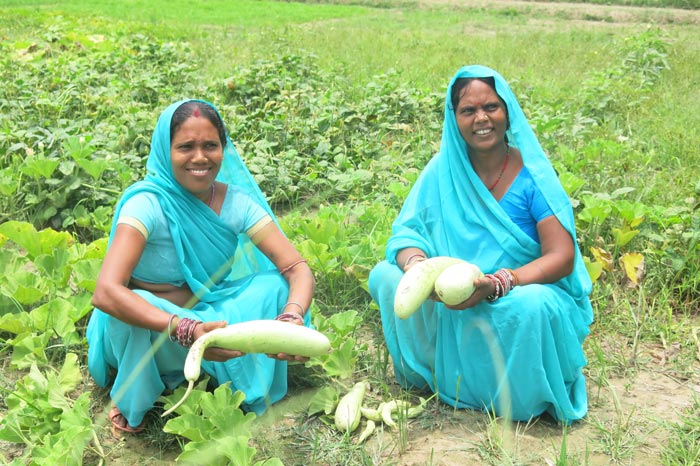Changing Fortunes in Rural Nepal – Part 1

Here is the first part of an article written by an intern from an American organization that is working with our partner Women for Peace and Democracy – Nepal. A PDF of the full article may be found on the WPD – N website but we will post part two soon!
By Becca Mathias
Gathered in a small room, around thirty women in matching saris are talking about money. Each one of them sets aside some monthly savings, while some pay back loans and still others take loans to begin businesses. Many are raising goats. Some have begun vegetable businesses, and a few have even begun their own vegetable farms. Yet, less than one and a half years ago, these women had no such opportunity. They were mostly uneducated, untrained for any skilled work, and unaware of attainable income-generating opportunities and laws to protect themselves.
Muhammad Yunus once said, “If we want to help poor people out, one way to do that is to help them explore and use their own capability. Human being is full of capacity, full of capability, is a wonderful creation. But many people never get a chance to explore that.”
This tactic should be of great use in Nepal, where around 25 percent of the people live in poverty, many of which are rural women. Unfortunately, corruption is widespread here, especially within the many local non-governmental organizations. So in a way, it came as no surprise that, when WPD-Nepal arrived in Bindhi village with the intention of helping the women there find a way to generate income, they were met with people who were hesitant, skeptical and questioning.
Bindhi is a village outside of Janakpur, a town in the southern region of Nepal known as the Terai. Unlike the region of the Himalayas to the north, the Terai has geography more like that of northern India. It is made up of vast plains and fertile land, though many lack the necessary knowledge and resources to benefit from it. Janakpur itself is a hot, dusty town, full of potholes, and streets lined with trash. Bindhi is just a bumpy, 30 minute rickshaw ride away.
Back in October of 2012, Shobha Pradhan Shrestha of Women for Peace and Democracy – Nepal first arrived in Bindhi with representatives from Canadian non-profit, World Accord. Those in the community were clearly reluctant to participate. But World Accord decided to trust Shrestha, and slowly the people in Bindhi came to trust her as well.
The program began in March of 2013, and there were times when trainers would have to go door to door asking the women to attend. Men in the community were also skeptical, and some would even refuse to let their wives or daughters-in-law attend the trainings. One of these men was a rickshaw driver in the village. He preferred his daughter-in-law stay home, tending to the house and the children. He was clearly resentful when she would go to the meetings in the beginning. But gradually, something began to change. His daughter-in-law gained confidence, began saving money, and began earning money for her family. Realizing that these meetings were good for his family, he eventually was happy to allow his daughter-in-law to attend. He even warmed up to Shrestha herself, offering her rickshaw rides back to the hotel.
The women began with an adult education program, teaching them the basics of reading and writing. Not only did they learn how to write and sign their names, but the time spent together in the meetings helped them begin to develop confidence. Many women in the community who were once unable to voice their opinions began to speak in the meetings. Even in some of the trainings, the trainers would notice that the women were quiet the first day. By the second day, though, they were sharing and talking.
These changes occurred gradually over the next year. The women began taking ownership of the program, participating fully. Not only does WPD-Nepal encourage them to save money monthly, it has also set up a trust fund so the women can take out loans to start businesses. They began saving 50 rupees each month, savings that have contributed almost half of all the money in the trust fund. The members then get to decide who can take out loans at each meeting, giving them even more ownership of the process.
Less than a year later, not only were these women generating income, they had become a stronger community. In February of 2014, Shrestha brought two visitors from the Institute for Peace and Justice at the University of San Diego. These women who had once been hesitant now warmly welcomed two strangers into their community. At this point, many had already taken out loans for goat raising and vegetable businesses. They were making money, saving, and learning how to manage cash. Some were even helping to facilitate the meetings and training sessions, explaining certain topics when asked by the trainer. By the time I arrived in June, the women were engaged in the meetings and paying back loans.
